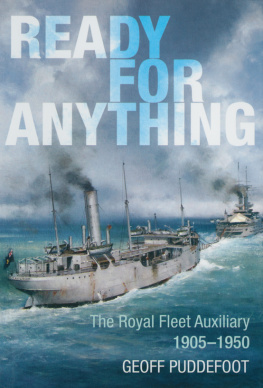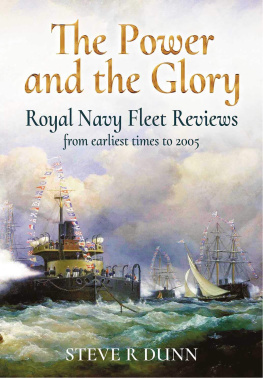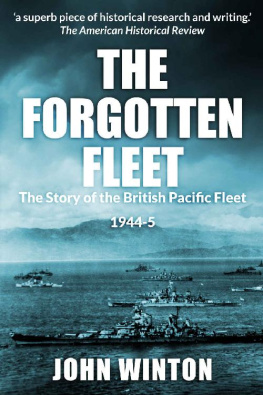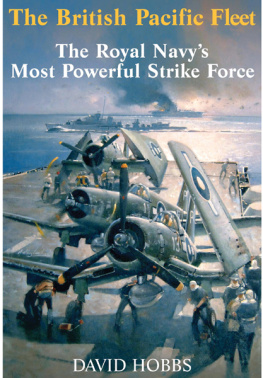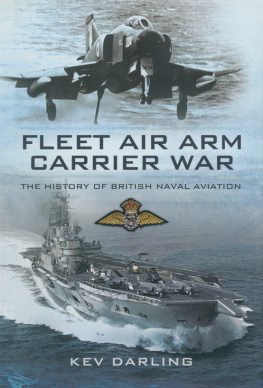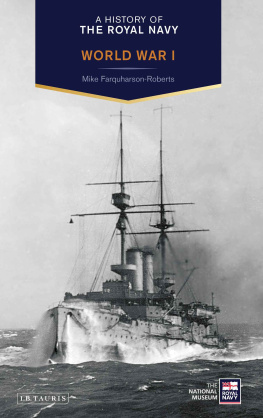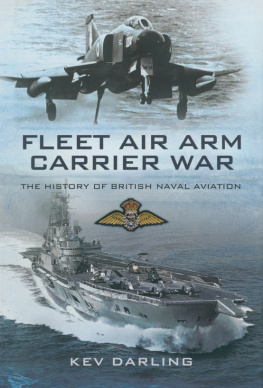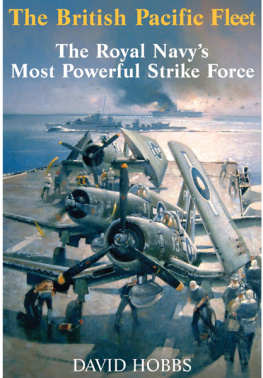READY FOR ANYTHING
READY FOR ANYTHING
The Royal Fleet Auxiliary 19051950
Geoff Puddefoot
Copyright Geoff Puddefoot 2010
First published in Great Britain in 2010 by
Seaforth Publishing
An imprint of Pen & Sword Books Ltd
47 Church Street, Barnsley
South Yorkshire S70 2AS
www.seaforthpublishing.com
Email info@seaforthpublishing.com
British Library Cataloguing in Publication Data
A CIP data record for this book is available from the British Library
ISBN 978 1 84832 074 1
All rights reserved. No part of this publication may be reproduced or transmitted
in any form or by any means, electronic or mechanical, including photocopying,
recording, or any information storage and retrieval system, without prior permission
in writing of both the copyright owner and the above publisher.
The right of Geoff Puddefoot to be identified as the author of this work has been asserted
by him in accordance with the Copyright, Designs and Patents Act 1988
Typeset and designed by M.A.T.S. Typesetters, Leigh-on-Sea, Essex
Printed and bound in Great Britain by
CPI Antony Rowe, Chippenham, Wiltshire
Contents
(between pages 114 and 115)
PLATE I
PLATE II
PLATE III
PLATE IV
PLATE V
PLATE VI
PLATE VII
PLATE VIII
PLATE IX
(National Maritime Museum L3435)
PLATE X
PLATE XI
PLATE XII
(National Archives)
PLATE XIII
PLATE XIV BULAWAYO TRIALS (i)
PLATE XV BULAWAYO TRIALS (ii)
PLATE XVI
In any book on as extensive a subject as the Royal Fleet Auxiliary, the authors problem is not so much what to include as what to leave out from the vast amount of material the subject encompasses.
I have therefore, once again, included predominantly material, information and personal accounts that reflect the character and development of the Service, rather than introducing strictly technical matters, which have been dealt with exhaustively elsewhere.
As in the previous book, this probably means that some areas are less well and fully documented than would otherwise have been the case. It is, however, my hope that the extensive reference section will serve as an adequate guide to those whose researches require more depth of knowledge than they find available here.
The author would like to acknowledge the help and advice of Captain Shane Redmond OBE RFA (Retd), Gordon Wilson, Martyn Hobbs, George Mortimore, and all of the serving and former members of the RFA, too numerous to name individually who took the time to supply photographs, information and anecdotes, without which this book would not have been possible.
I would also like to acknowledge the help of both Bexley and Dartford Library Services staff and the staff at the National Archive and the National Maritime Museum.
Since its creation in 1905, the Royal Fleet Auxiliary has been involved wherever ships of the Royal Navy have seen action.
Supplying the fuel, ammunition and basic necessities of life which keep the ships afloat and operating, the RFAs contribution has gone largely unnoticed, despite the fact that RFA men (and women) have frequently given their lives to ensure the smooth operation of the Navys ships.
Francos Spain, the Second World War, Korea, Suez, Aden, Oman, Northern Ireland, Rhodesia, Bluff Cove, Kuwait, Iraq: the areas of our naval deployment have spanned the world, and in the present world climate there is no reason to think that our reach will contract. The naval history of this era has been written in blood, some of it belonging to the men and women of the RFA.
But who were the men who operated the ships that fuelled the Russian convoys and manhandled ammunition under a burning Pacific sun, during that second war which was to end all wars?
Just the same sort as carried out a pump-over, forty years later, while simultaneously refueling HMS Plymouth, as a force 10 gale and thirty-foot waves in the Southern Ocean tried to tear the guts out of their battered, rusty ships, and an Argentinian submarine played them a deadly game of hide-and-seek. And for those who dont remember, the ships were RFAs Tidespring and Brambleleaf and the place was 200 miles north of a tiny speck on the chart called South Georgia.
Chronicles of the Royal Navy are myriad, but the RFAs story still remains largely untold. Finding out about the ships isnt hard, but the story of the men who worked them still remains something of a mystery.
And its that story that this book and its companion volume, The Fourth Force, sets out to tell.
Prior to the development of reliable military aircraft, sea power, with its associated encouragement and protection of successful overseas trade, had historically been the key to a dominant position in the world order.
It was overwhelming naval superiority, supported by a system of shore bases, which allowed the Royal Navys warships to protect Britains vital trading routes and facilitated the expansion of British overseas possessions during the eighteenth and early nineteenth century. Control and successful exploitation of those colonies was also largely dependent upon sea power, although, ultimately, law and order in the areas concerned depended upon the presence of a well trained, professional standing army for the purposes of backing the civil administration. It is a clear indication of the reputation which her armed forces enjoyed that Great Britain was able to retain and financially exploit these colonial possessions, despite UK military personnel often being outnumbered by anything from a hundred to a thousand to one by the indigenous population. It was only with the appearance of Imperial Germany as a major European military, colonial and economic rival, in the nineteenth century and early twentieth century, that the Royal Navys maritime superiority began to be questioned.
Two centuries before the British began their Imperial expansion, however, the foundations of what was to become the Royal Navy were laid by aggressive and adventurous Elizabethan sailors. The conflict with Spain, in both Europe and the New World, involved operations at far greater distances than was common in the earlier Tudor era, and brought new problems such as diseases caused by dietary deficiencies on long voyages. This was intimately related to the question of how to keep ships supplied with food and other staples far away from established shore facilities, when squadrons might be at sea for months or even years. Drake and Frobisher certainly took store ships with them when they raided Spains American colonies, although they probably were not the first to make use of such vessels. These were just a heterogeneous collection of ordinary merchant ships scraped together as the needs of the fleet required and simply loaded with food, water and probably ammunition.
In the centuries that followed, the Royal Navy established a more or less permanent presence in almost all the worlds oceans. This was made possible by a network of bases gradually built up in the Mediterranean, North America, the Caribbean, and India, but regular voyages to and from these stations, and ever-longer patrols, placed greater emphasis on victualling. Even in European waters, the developing strategy of close blockade of enemy ports required longer stints of sea time, and a proper system to keep ships supplied and crews healthy. By the time of the Napoleonic Wars there was a well-practised organisation that chartered small merchant ships as victuallers and sent them out to meet the fleet at times it could even supply some fresh provisions on a regular basis.
Next page
